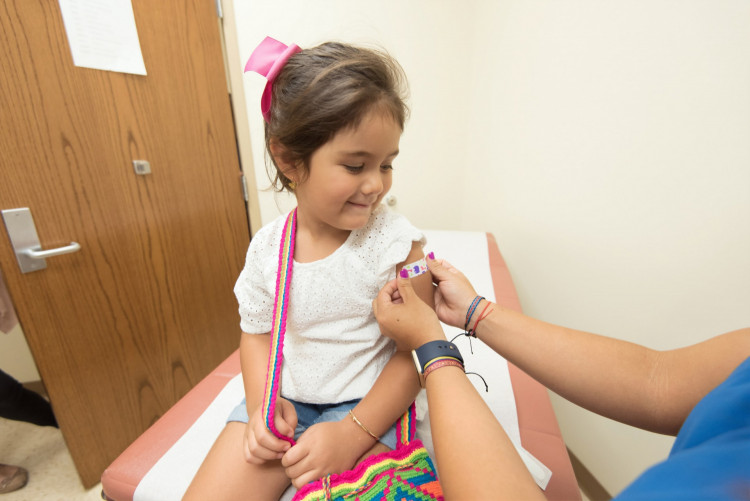Pfizer-BioNTech announced on Friday that they will add a third dose to current clinical studies of their COVID-19 vaccine in children as young as 6 months old.
The testing of a third dose will cause a delay in submitting data to regulators in order to gain approval for use in the U.S. Pfizer's CEO stated in the fall that the company intended to have results for this age group by the end of 2021. If the trials are successful, the business expects to file results in the "first half of 2022."
According to the companies, two doses did not produce a strong immunological response in children aged 2 to 5.
"The study will now include evaluating a third dose of 3 micrograms at least two months after the second dose of the two-dose series to provide high levels of protection in this young age group," Pfizer said.
For children, Pfizer had reduced the dosage size. The vaccine dose for children aged 12 and up is 30 micrograms. Pfizer and BioNTech reduced the dose to 10 micrograms for children aged 5 to 11, and to 3 micrograms for the youngest children.
Early testing suggested that this low dose will elicit a high immunological response in youngsters while reducing the likelihood of negative effects.
However, preliminary data shows that the tiny dose regimen did not induce the predicted immunological response in the 2- to 5-year-olds, which the independent Data and Safety Monitoring Board can see without disclosing any specifics to the company or investigators.
"No safety concerns were identified and the 3 microgram dose demonstrated a favorable safety profile in children 6 months to under 5 years of age," Pfizer said in a statement.
So yet, the Food and Drug Administration has only approved the Pfizer-BioNTech vaccine for emergency use in children aged 5 and older.
According to research, the Pfizer-BioNTech vaccine is less effective against the fast spreading Omicron variant than it was against previous strains of the virus. A booster dose, on the other hand, has been found to provide significant additional protection. Moderna published comparable results for their vaccine earlier this week.
The FDA approved a third booster dose of either vaccination for all adults in the U.S. last month.
Pfizer also announced that it was working on a vaccine to combat the virus's Omicron variant, which has spread fast over the world in recent weeks. Clinical studies on the improved Omicron-specific vaccine are expected to begin in January, the company said.
Pfizer also said that 30 million of the projected 80 million Paxlovid antiviral pill treatment courses will be available in the first six months of 2022.






